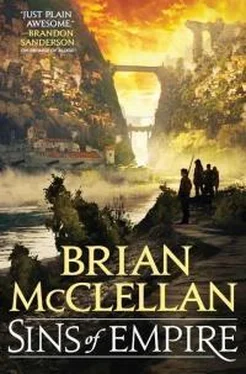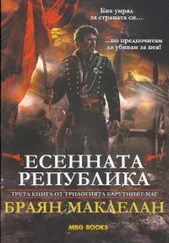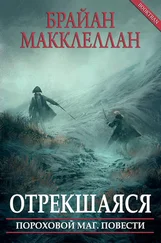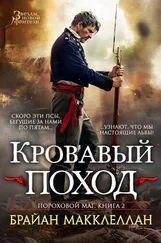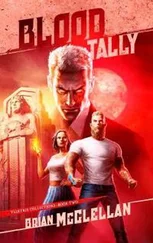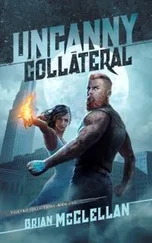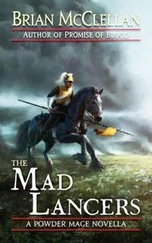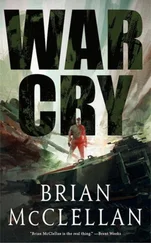“You remember this city?” he asked.
“Yes,” Celine said matter-of-factly. “Dad was only in the camps for six months before he drowned. We used to go all over the boroughs, so I know each of them pretty well.”
“Good. It’s been a long time since I was here last. The city feels different… like an old saddle I sold long ago and have only now bought back. The market” – he gestured around him – “it’s all the same.” He pointed to the slanting, eastern face of the plateau. “That road there is new; so is that one. The main road over to the foundries has been widened. Everything is… wrong.”
“My dad used to say it was progress. The Lady Chancellor ripping up the old buildings and putting in new ones, whole blocks at a time.”
“Don’t say that word.”
“What word?”
“Progress. Say ‘shit,’ ‘damn,’ or ‘pit’ all you want, but ‘progress’ is a curse around me. Such a stupid bloody word.” Styke shook his head, feeling Celine tighten her grip momentarily. “Lindet’s trying to rebuild the city in her image, but it’s all on the surface – the front half. She put any new tenements up in Greenfire Depths?”
“No,” Celine said.
“Didn’t think so.” Styke pictured the map of the city he kept in his head. Landfall had started as a fort atop the cracked Landfall Plateau – an oblong chunk of rock that rose almost two hundred feet above the floodplains of Fatrasta’s eastern coast. During the Kez reign, the town had overfilled the plateau and spread across the plains from Novi’s Arm in the south to the labor camps in the marshes to the north. The “front half,” as he liked to call it, included the bay, docks, industrial center, and the bourgeoisie tenements and government buildings up on the plateau. The “back half” consisted of several miles of slums, stretching toward the west, and including the old Dynize quarry known as Greenfire Depths.
Nobody cared about Greenfire Depths back during the war, and nobody cared about it now. Some things never changed.
Styke caught sight of a small building in the corner of the marketplace. Smoke belched from several stacks on the roof and a sign read FLES AND FLES FINE BLADES.
“You remember what you used to do in the camp?” Styke asked Celine.
“Keep an eye out?”
“Yeah. You’re going to have to do that from now on, except this time it’s going to be harder. We’re not in the camp anymore, and not everyone is an enemy.”
“Shouldn’t that make it easier?”
“You’d think, but out here you don’t know who your friends or enemies are. Every person you see has the potential to be either one, and you’ll have to judge for yourself which they are.”
“Dad always said never to trust anyone.”
“Gotta trust some people some of the time. Otherwise what’s the use of living?”
“So how will I know if someone is my friend?” Celine asked.
Styke lifted her off his shoulder as they drew closer to the sword vendor, setting her on the ground beside him. “For now, I’ll let you know. But this is a big world. I won’t be able to tell you all the time. You’ll have to trust your instincts.”
“I can do it,” Celine said, lifting her chin proudly.
Styke patted her on the back of the head. “I know. Come on, we’re going in here. I’ve got to see someone.”
“Are they a friend or an enemy?” Celine asked.
Styke paused, considering this for a moment. “A friend. I hope.”
The blade vendor had a long, narrow stall facing the market street, behind which several red-faced youths stood wearing smith’s aprons, hawking swords and knives of all kinds to the passing crowd. Styke sidled up to the table and looked over it, eyeing the quality of the knives, looking for something that could fit his size. Nothing stood out to him. “Since when does Fles and Fles take on apprentices?” he asked.
Two of the boys behind the table glanced at each other. “Seven, maybe eight years now,” the older one said.
And some things, Styke told himself silently, change a lot. “I’m looking for Ibana ja Fles.”
“Ibana isn’t here,” the older boy said. “She went to Redstone a few weeks ago for an ore shipment.”
Styke let out something between an annoyed groan and a sigh of relief. He wasn’t entirely sure himself which it was. “How about the Old Man? He still kicking around here?”
“Mr. Fles is in the back.”
“Right.” Styke walked around the table and ducked into the building behind it, ignoring the protests of the apprentices. Celine followed on his heels.
The inside of the foundry was well lit by large windows and strategically placed gaps in the roof. Four bellows worked at once, feeding four fires, each of them attended by a trio of apprentices. The clang of hammers on steel was deafening as he passed through the center of the foundry and approached a curtain near the back. He pulled it aside to reveal a small workbench.
An old man, less than five feet tall with sagging cheeks and arms folded across his chest, sat rocking back in his chair, feet on the workbench, long mustache trembling as he snored loudly enough to compete with the hammers. Styke watched him for a moment, feeling an involuntary smile tug at the corner of his mouth.
There was a time he thought he’d never see Old Man Fles again.
Styke held his finger up to his lips, motioning to Celine to come inside the curtained-off workshop and close the curtain, then held his hands right next to the Old Man’s left ear. He clapped them together as hard as he could, hard enough to make his crippled hand throb painfully.
Old Man Fles leapt halfway out of his chair, arms windmilling, and would have gone over backward had Styke not caught him.
“By Kresimir,” Fles swore, “who the… what the… why are you back here? Can’t you see important work is being done? I will summon my… I will summon… my…” Fles regained his composure slowly, his eyes focusing on Styke. He searched his apron pockets for a pair of spectacles and perched them on the bridge of his nose. “Benjamin?” he asked incredulously. “Benjamin Styke?”
“That’s right,” Styke said.
Fles blinked at him for several moments. His mouth opened, then closed, and slowly the surprised expression slid off his face, replaced by annoyance – like he was staring at a barely tolerated dog he thought had run off for good. “I thought you were dead.”
“They tried,” Styke said. “Twice.”
“By Kresimir,” Fles breathed. “Where have you been?”
“Work camps.”
“Last we heard you’d been put up against the wall. You never wrote. Ibana is going to kill you.” The three sentences came out in a quick tumble of words.
“I was. And they wouldn’t let me.”
“Won’t matter to her, you know.”
Styke sighed. “I know.”
Fles’s eyes went to Celine. “Who’s this?”
“My associate, Celine. Celine, this is Old Man Fles. He’s the best swordmaker in Fatrasta.”
“Don’t short me, boy,” Fles said. “I’m the best in the world.”
Celine seemed more than a little skeptical. “You’re a blacksmith?” she asked.
“A blacksmith?” Fles huffed. “Do I look like I make horseshoes and trinkets? I deal death here, little lady. The finest death in all the lands. Here, take a look at this.” Fles reached across his workbench, plucking a sword off the wall. It was a smallsword, simple and elegant, with a silver guard and gold rivets on the pommel. He held it beneath Celine’s nose. “This is my latest. Took me eight months.”
“It doesn’t look very fancy,” Celine said.
“Fancy has nothing to do with a good sword,” Fles countered. “Doesn’t matter if you’re a child or seven feet tall – the balance on this sword is perfect. It weighs next to nothing, without sacrificing momentum. There’s magic in this blade.”
Читать дальше
